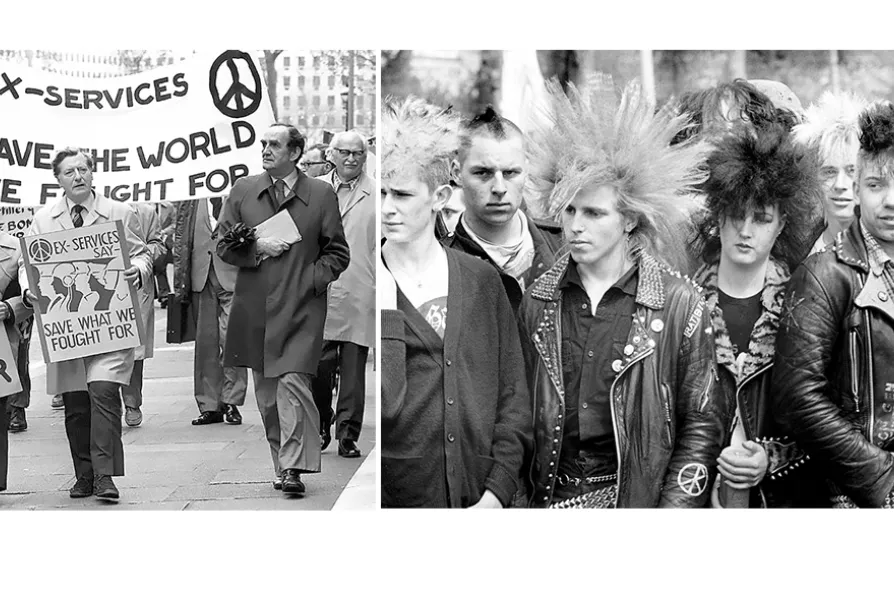The Carpathia isn’t coming to rescue this government still swimming in the mire, writes LINDA PENTZ GUNTER

 ALL WALKS OF LIFE: (Left) Ex-servicemen members of CND march in London in 1983; (right) Punks for Peace join campaign for nuclear disarmament march in London for the Rock the Bomb Festival of Peace in Brixton
ALL WALKS OF LIFE: (Left) Ex-servicemen members of CND march in London in 1983; (right) Punks for Peace join campaign for nuclear disarmament march in London for the Rock the Bomb Festival of Peace in Brixton
BEFORE I was a member of a trade union, I was a member of Youth CND. My teenage years were heavily influenced by the peace and anti-nuclear movements in Britain and internationally.
We joined Ban the Bomb demos in London. We visited peace camps at Alconbury, Lakenheath and Greenham Common. We headed to Brockwell Park to hear the Style Council, The Damned and Madness at the CND Youth Festival for Peace in 1983.
The popular culture of resistance to cold war warriors gave my generation its music, politics and attitude. Growing up in 1970s and 1980s under the shadow of a tactical nuclear arms race and the doctrine of mutually assured destruction affected my generation in a way comparable to the effect of social media today on young people in coverage of Israel’s genocide in Gaza. It gave us a sense of urgency that called on us to become activists.

SOLOMON HUGHES explains how the PM is channelling the spirit of Reagan and Thatcher with a ‘two-tier’ nuclear deterrent, whose Greenham Common predecessor was eventually fought off by a bunch of ‘punks and crazies’

RMT’s former president ALEX GORDON explains why his union supports defence diversification and a just transition for workers in regions dependent on military contracts, and calls on readers to join CND’s demo against nuclear-armed submarines on June 7










